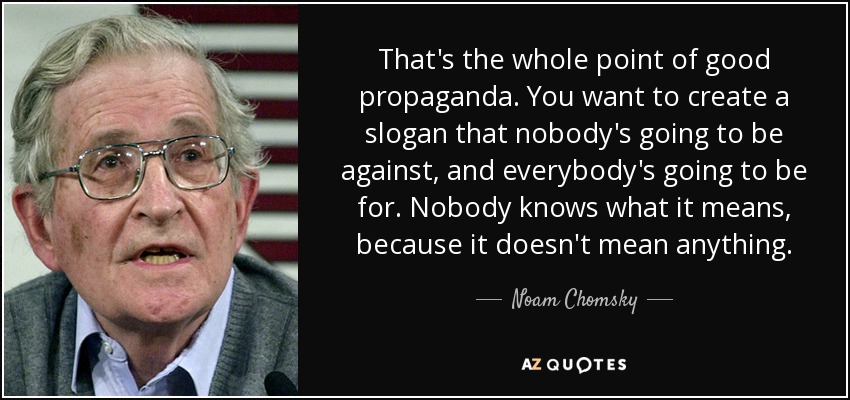
Praise the independence of the media, it´s not as if MSNBC is close to the only larger media outlet that dares to criticize the economic system while CNN, BBC, etc. system is placed in poorly legible font size somewhere on the left bottom half of page 74 where nobody reads it. Therefore, the extremely important message about the controversial reform of the health care, pension, educational, etc. It´s a difficult but essential game, because if a media company completely forgets such a report it could be exposed to the criticism of not openly and objectively reporting about essential topics.

In modern media, it´s important to never let the uncomfortable and in-depth facts crawl too close to the light, and to achieve this it´s best to mention them in the shortest newsflashes at lousy airtime and in subsidiary columns with ten words. The illusion of a mature, open minded awareness is a constructed propaganda model.

mass media are, how they systematically fail to live up to their self-image as providers of the kind of information that people need to make sense of the world, and how we can understand their function in a radically new way. What emerges from this work is a powerful assessment of how propagandistic the U.S.

These include the manner in which the media covered the passage of the North American Free Trade Agreement and subsequent Mexican financial meltdown of 1994-1995, the media’s handling of the protests against the World Trade Organization, World Bank, and International Monetary Fund in 19, and the media’s treatment of the chemical industry and its regulation. Their new introduction updates the Propaganda Model and the earlier case studies, and it discusses several other applications. wars against Indochina-Herman and Chomsky draw on decades of criticism and research to propose a Propaganda Model to explain the media’s behavior and performance. Herman and Noam Chomsky show that, contrary to the usual image of the news media as cantankerous, obstinate, and ubiquitous in their search for truth and defense of justice, in their actual practice they defend the economic, social, and political agendas of the privileged groups that dominate domestic society, the state, and the global order.īased on a series of case studies-including the media’s dichotomous treatment of “worthy” versus “unworthy” victims, “legitimizing” and “meaningless” Third World elections, and devastating critiques of media coverage of the U.S.


 0 kommentar(er)
0 kommentar(er)
